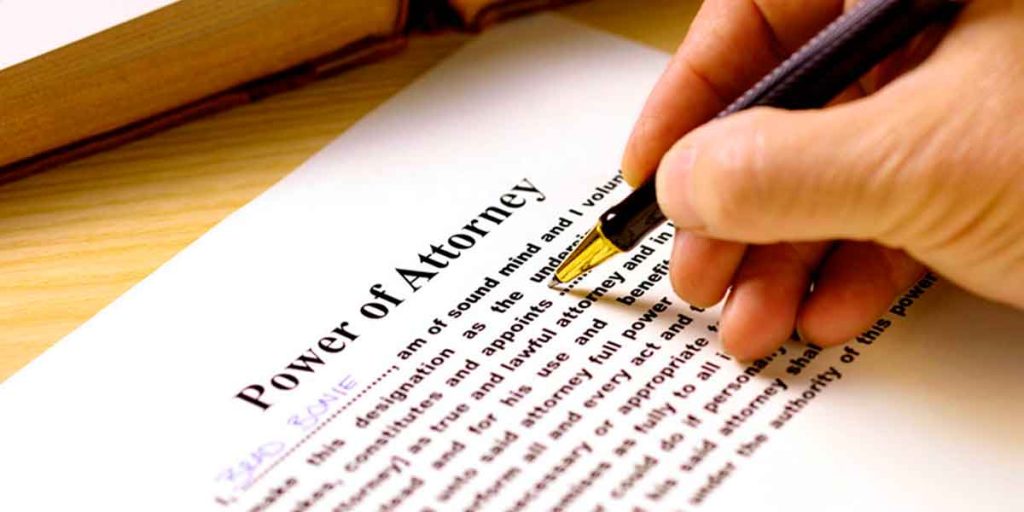POA is an estate planning tool that allows one person named as a principal or grantor to appoint another person called an agent or attorney-in-fact to make decisions on their behalf in events they are unable to make these decisions may be for reasons such as incapacity, absence, and so on. Whether you are an agent or a principal/grantor in a POA, understanding what is granted or given in a POA is very essential in ensuring every party efficiently does their work. A family estate lawyer may be of great help in that. Nevertheless, based on the various types of POA, the agent may be granted a high degree of authority or less over the grantor’s assets as a whole. The agents may also be limited to a specific area of operation where they’re expected to exercise their authority or be diversified in different areas of the grantor’s affairs such as: making decisions over their fiscal affairs, investments, health care, assets, etc. If you are appointed as an agent in a POA agreement, what are the powers granted to you by the principal? Defining your duties is a great start in understanding what you can and can’t do as an agent. Elderly law attorneys assist older people to understand what powers they can give to agents. Below are some of the powers an agent is granted in a POA.
All About What Is Granted in A POA
With regards to the type of POA, the agent is granted certain powers/ authority such as:
Authority over real estate.
In a POA, your agent is granted the power to decide over matters affecting your real estate. This broadly includes managerial decisions such as selling, acquiring, and leasing your real estate.
Powers over businesses
An agent in a POA is entitled to manage your business affairs either entirely or a part of it as stipulated in the POA deed. Business affairs the agent can decide over them includes;
- deciding when, where, and how to invest your funds or capital.
- Making decisions over your trade activities.
- Managing any kind of business dealings
- Handling any third-party claims over the business.
Entitlement over your financial affairs
The agent has an entitlement over your finances to the extent described in the POA deed. Financial affairs the agent has authority on may include;
- managing bank accounts.
- controlling the estate taxes.
Authority over your family matters
Based on your specifications of the type of POA and the extend of the agent’s authority, this type of authority granted to your agent enables them to decide over family matters such as;
- Hiring professionals to handle your family affairs e.g. a guardian for the kids if you have them
- Buying gifts for your family
- Buying, selling, or trading your assets.
Authority over your health matters
An agent in a health care POA has the power of making decisions over your health matters such as; the doctors to treat you, where to be treated, the king of medicines you take, and any other decision that is in line with your wellbeing. Elderly law attorneys are helpful for old individuals struggling with their health and protecting money from a nursing home.
Overall authority over your affairs
These types of POA agents are specifically under the general POA type. In this case, you grant to your agent the power to decide over all your affairs in the same manner that you could have done if you were in a position to decide for yourself. Therefore, the agent has a high degree of authority over your affairs than any other agent under a different type of POA.
FAQs
What are the various types of POA?
The various types of POA include;
- Durable POA
- Springing POA
- General POA
- Financial POA
- Medical POA
What are the responsibilities of POA?
A POA responsibility is determined by your specifications in the POA deed, but generally, the responsibility of a power of attorney is to make decisions over your financial and personal affairs.
When do I need a POA?
You need a POA whenever you feel like delegating some of your affairs to be decided over by another person. However, some situations may make it urgent. Situations such as being on the verge of mental incapacity.
Can I revoke my POA?
You are at liberty to revoke your POA any time for whatever reason such as just changing your mind. It should be done publicly and before a surrogate court in NY
Who is the best elderly care lawyer near me in NY?
Best elderly care lawyers are available near your state in NY and outside. Our free attorney consultation helps clients with any kind of estate planning question. Consult now for free.









